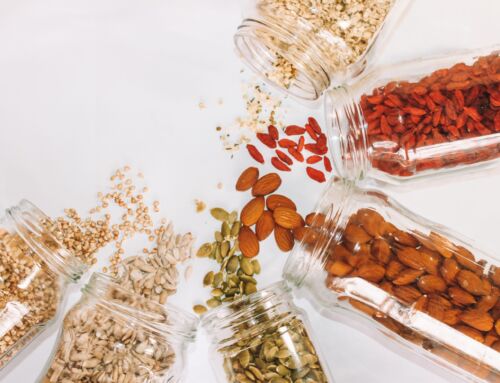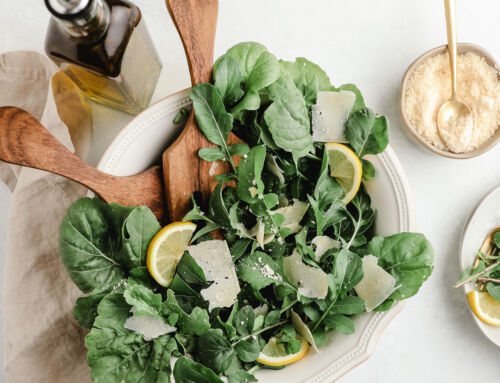In part one, Why Gut Health Matters? I talked about the importance of gut health and what a “normal” functioning digestive system looks like. In today’s post it’s all about taking back control of your health and tips on how to start healing your gut.
I speak for the whole team of practitioners at Mullen Natural Health Centre when I say, our goal is to educate and empower you to be in control when it comes to your health. We want you to live as healthily and actively for as long as possible, and the best place to start? Improving your digestion!
It all starts with you!
You are the master of your own domain when it comes to digestive health and you understand your body better than anybody else. This puts you in the driver’s seat when it comes to healing your body and there are some simple strategies you can implement into your everyday that are cost effective and have a profound effect on digestive function.
Eat more plants – this is not a new idea, however if it ain’t broke, don’t fix it! Adding more plants to your plate is the quickest way to improve your digestive function. Why?
- Fibre – plant food is chock full of dietary fibre which improves intestinal motility by acting like a broom for your colon. Fibre will add bulk and sweep through your colon, keeping your bowel movement well-formed and regular. Fibre supports detoxification and digestion, but also helps to reduce inflammation and cholesterol, and stabilise blood sugar. It is important to remember however, that not all fibre is created equal. The goal is to increase your fibre-rich plant foods – think vegetables, salads, herbs, fruit, complex grains, seeds and nuts. Steer clear of pseudo fibres such as bread and pasta, whilst these products do contain fibre, they are much harder to digest due to the way they are processed and don’t feed our good gut bugs like natural plant foods. See below for what the recommended daily intake of fibre may look like, I think you’ll be surprised!
- Polyphenols – are phytonutrients found in all plant foods. Whilst they are non-essential nutrients, in my opinion they are pretty important to our whole health. Polyphenols work as antioxidants, anti-inflammatories and, anti-diabetic and anti-obesiogenic compounds, among many other things! They really are so powerful. New research has shown that polyphenols (eg: anthocyanins found in blueberries) are most beneficial due to their prebiotic effect on the gut microbiota. They work to feed our good gut bugs keeping them happy, and in turn our microbiome enhances the polyphenolic effects, a true bi-directional relationship. So not only are we getting whole body effects by eating more plants, we are also improving our microbiome ecosystem. And as we discussed in part one, a happy microbiome equals a happy digestive system!
The daily recommended intake for fibre is 30g. Sounds simple, but what does this actually look like?
Breakfast: ½ cup oats with medium pear and tablespoon of chia = 13g
Lunch: ½ cup lentil and 1 cup vegetables (carrot, onion, celery, leek, tomatoes) stew = 10g
Dinner: ½ cup brown rice, with 1 cup vegetables (broccoli, cauliflower, capscium) and salmon = 12g
Total 35g and it’s a diverse mix of natural plant foods, rich in polyphenols too!
Water, water, water! – hydration is key when it comes to a healthy GIT! Just like fibre helps to regulate bowel movements, so does water. Mild dehydration is a risk factor for poor digestion and what I notice a lot in clinic is that most people don’t even realise they are dehydrated. If your bowel movements are small, hard to pass or often feel unfinished, there is a very good chance you are dehydrated. If you notice your bowel movements tend to be on the looser side and much more frequent, again you could be dehydrated. Start the day with two big glasses of water, ideally warm if possible, aiming to drink at least 2 litres per day. But remember to avoid drinking with meals, try to drink 15minutes before you eat or 60minutes after, as drinking with meals can dilute digestive secretions, inhibiting digestion and causing symptoms.
Stimulate the vagus nerve – the tenth cranial nerve is rooted in your brainstem, travelling to your abdomen, touching most major organs along the way. Aptly called the vagus nerve due to the Latin word for wandering, as it wanders throughout the body overseeing many crucial functions. It is an integral part of the gut-brain connection as it is central to the parasympathetic nervous system (our time to rest and digest) by innervating various parts of the body to slow our heart rate and breathing and regulating our digestive processes. If we are able to stimulate the vagus nerve we are able to offset the negative effects that stress and anxiety can cause on our digestive system. We can calm our nervous systems ultimately benefiting our gut health by toning our vagal nerves with these simple tips:
- Cold water therapy – jumping in the ocean or a cold body of water will reduce our sympathetic nervous system (fight or flight) processes and stimulate the vagus nerve flipping your autonomic nervous system into rest and digest mode (parasympathetic nervous system)
- Laughing – just ten minutes of laughter stimulates diaphragmatic breathing which in turn stimulates our vagus nerve, providing us with good feelings and calming the nervous system
- Singing and chanting – the vagus nerve is connected to the vocal chords, by singing or chanting you directly stimulate the nerve itself
With these simple tips above you will be well on your way to a healthy functioning gut in no time, of course, experienced intervention is often needed and that’s where we step in. With an individualised approach to holistic health care, we aim to get to the root of your gut issues and treat using food and lifestyle interventions and targeted herbal and nutritional medicine. Interested? Phone 02 4961 4075 and to book an appointment or speak with one of our experienced practitioners in a free mini phone consult.
Yours in health,
Samantha Wilson




